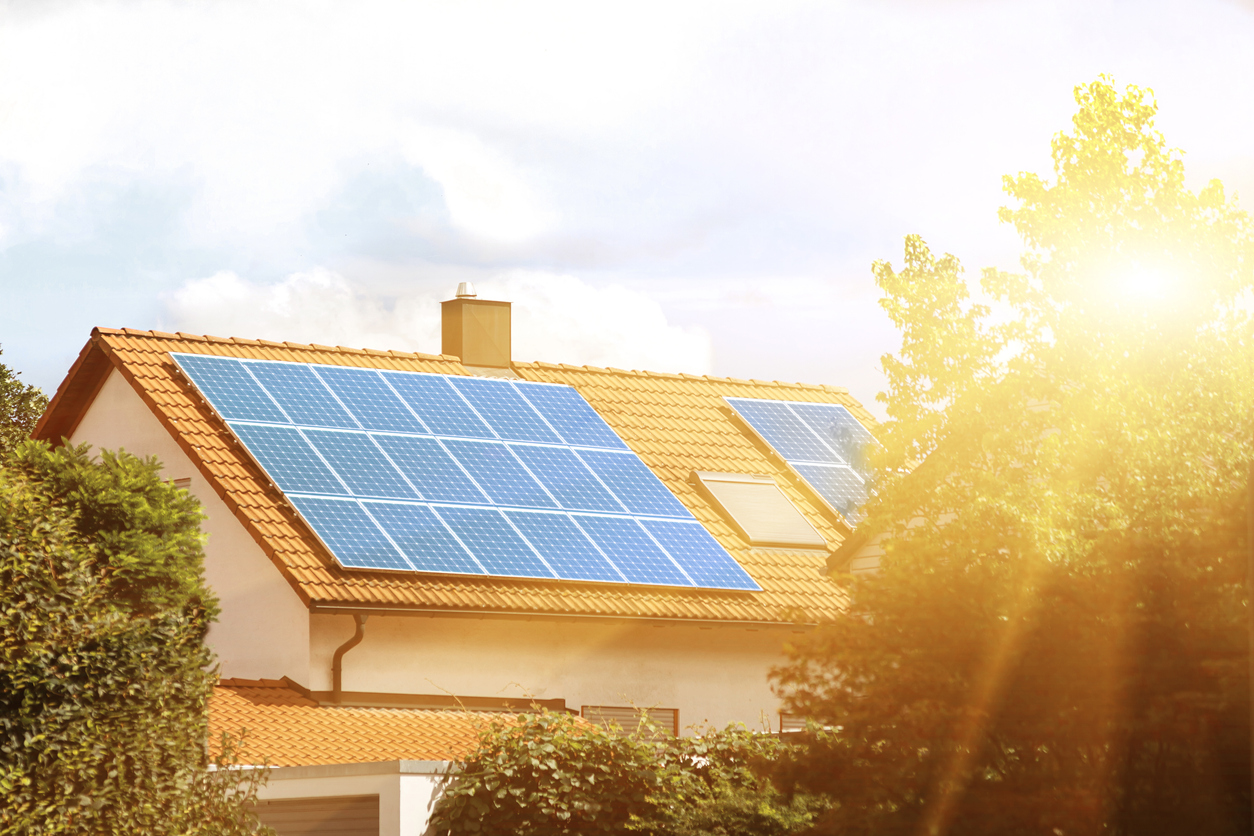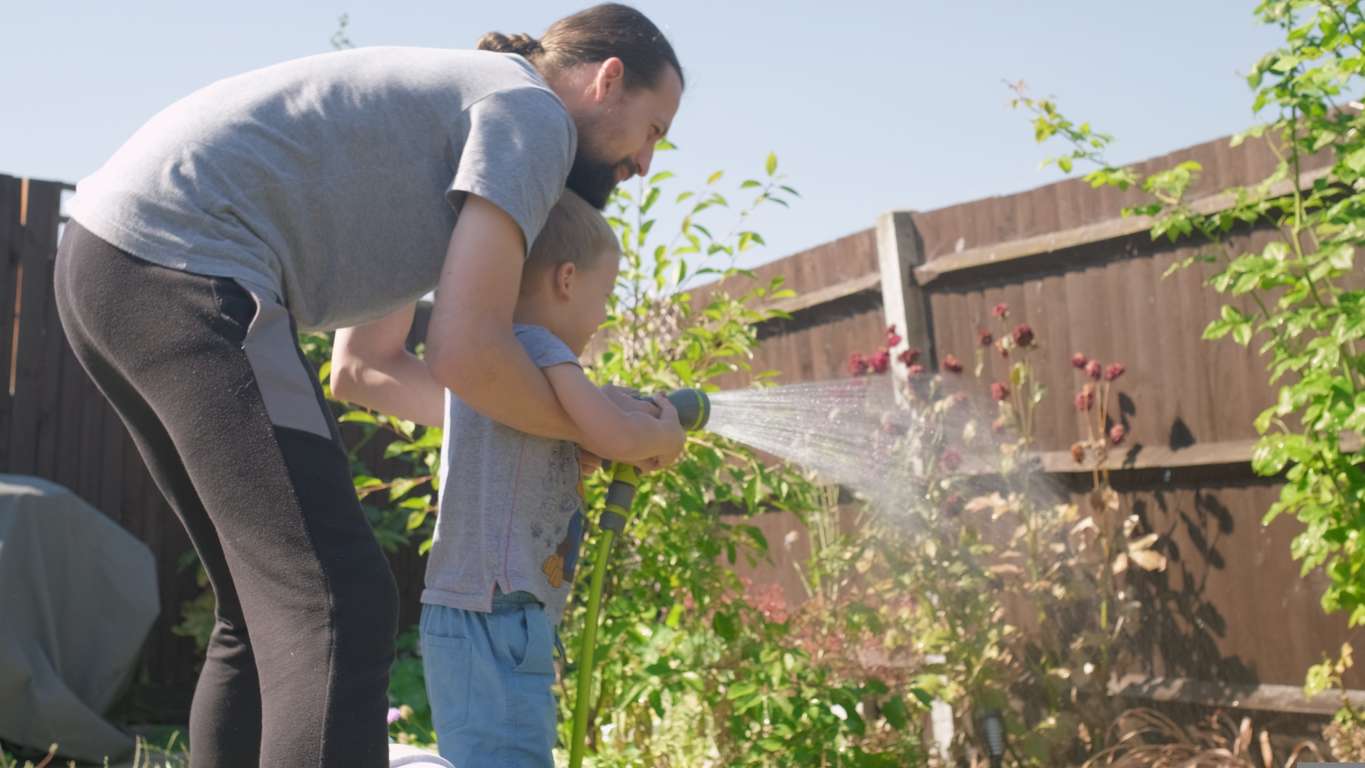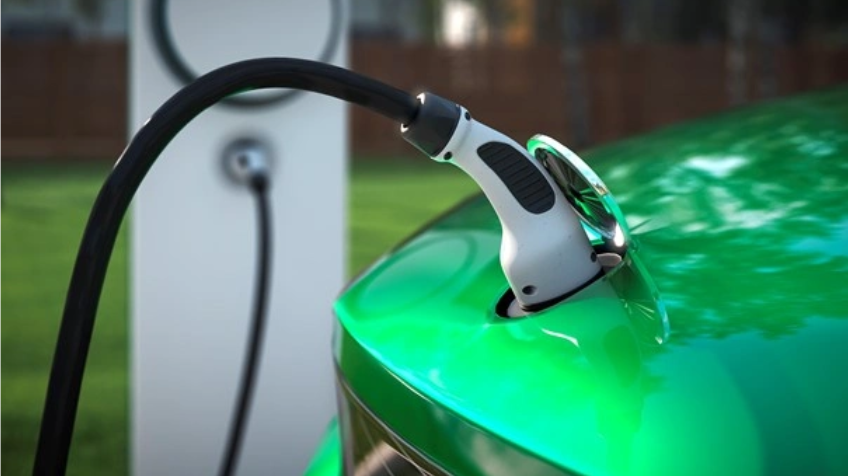Eco-friendly home improvements to make in 2024
Written by
Thursday 14th December 2023

Are you getting ready to go greener this year? There are several ways you can improve the energy efficiency of your home that will not only save energy but will save you a bit of cash in the long-run too.
In this blog, we’ll round-up the eco-friendly home improvements you can make in 2024.
If you’d love to make some green home renovations but you’re not sure how large upfront costs will fit into your budget, a personal loan could be a great option for you. Our unsecured home renovation loans are the ideal way to get the funds you need to kick-start your eco-friendly projects sooner. Check out our loan calculator to find out how much you could borrow!
Energy efficient home upgrades
Make it a New Year’s resolution to reduce your carbon footprint by investing in significant environmentally friendly home renovations.
Power your home with solar panels
Generating your own electricity reduces reliance on non-renewable fossil fuels. Not only does this reduce your environmental impact, but it’ll lower your energy bills over time too as you’ll be generating your own electricity rather than buying it from a utility company.
Solar panels are typically easy to install and maintain and can be used to power a wide range of homes so you can be sure to find an option to suit you.
How much could I save?
Research suggests a typical household could save between £210-£514 a year off bills by installing solar panels. You might also be eligible to receive payments from your energy supplier for the additional energy your solar panels provide.
Lots of things could impact how much you could save by installing solar panels though, such as the size of your property, the efficiency of your solar panels and how much sunlight is able to reach your solar panels. You can find a more accurate estimate of how much you could save by using the Energy Saving Trust’s solar energy calculator.
Keep cosy with a heat pump
Though still a relatively new phenomenon, a heat pump is a great way to keep your home warm without guzzling non-renewable natural gas. It essentially works by absorbing thermal energy from either the air or ground and transferring it to the home. While heat pumps do require electricity, they produce more energy than they use.
If heat pump installation just isn’t viable for you right now, buying a new, more efficient gas boiler could be a better option than your current set-up.
How much could I save?
Compared to older, less efficient heating methods (such as electric storage heaters or G-rated boilers), a heat pump could save you nearly £1,500 a year. This depends on several factors, including the heat pump system, house size, how well insulated the home is and how much you use the heat pump.
If you have a newer, more efficient gas boiler you may find a heat pump won’t save as much as you might like. In this case, it’s time to decide whether you’d prefer to pay a little more for the benefit of lowering your carbon footprint and opting for a heating system that’s thought to be kinder to the planet.
It’s all about the green
Plants help to absorb carbon dioxide and improve air quality, so you can do your bit for the planet by committing to a more green-fingered lifestyle.
Make a hobby out of being eco-friendly by growing your own organic fruit or veg. This reduces carbon emissions by cutting out food transportation, decreases plastic waste and prevents food waste — and you’ll have loads of fun tending to your tasty treats too.
You could even go one step further on your mission to go green by installing a green roof. This will help to improve overall air quality, whilst supporting wildlife in your local area.
How much could I save?
Growing your own veg will save you plenty of cash throughout the year as you’ll have less items to add to your shopping basket! Your everyday veg staples such as carrots and potatoes will suddenly become much cheaper, and you’ll have the satisfaction of knowing you’ve grown the food you’re eating yourself.
A green roof might show fewer tangible savings, but you could still see energy bill savings as a result of increased insulation. It might even increase the lifespan of your roof, which’ll save you money in the long run.
Insulate your home
Home insulation will help you keep toasty warm in the winter but stay cool in the summer, reducing the need for you to turn the heating on or resort to plug-in heaters or air conditioning units that can be expensive to run.
Loft insulation is a particularly popular choice, as it prevents heat escaping through the roof. Basic loft insulation can range from £300 to in excess of £4,000 depending on the size of your home and the type of insulation you choose.
How much could I save?
Loft insulation can save you over £200 a year by improving the thermal efficiency of your home. It can also add value to your home by improving its EPC.
So, if your loft insulation costs you £500 (which is thought to be the average), you could recoup the cost in under three years.
Replace your windows
A lot of your home’s heat is lost through your windows, particularly if you have old, single glazed windowpanes. Investing in double glazing will reduce heat loss, in turn keeping your house a little bit warmer so you won’t have to crank the heating on as much! This’ll save energy and reduce your energy bill.
For more information, take a look at our buyer’s guide to double glazing.
How much could I save?
According to the Energy Saving Trust, you could save £195 a year by installing A-rated double glazing — and even more if you opt for A++ rated double glazed windows.

Change your habits to improve your energy use
Most of us know to recycle, avoid single-use plastic, and reduce energy usage where possible. Whilst small lifestyle changes all add up, there are many other ways you can swap your day-to-day purchases for more environmentally friendly alternatives.
From making sure your light bulbs are LED to upgrading your home appliances to more efficient models, there are many ways to reduce your carbon footprint simply by being more mindful about your purchasing choices.
For example, did you know low-VOC (volatile organic compound) paint is more environmentally friendly than traditional paint? It releases fewer harmful chemicals into the air, which in turn has a positive impact on air quality.
The benefits of eco-friendly home improvements
Going ahead with any home improvement project can be disruptive and sometimes expensive, but you may find the benefits of green renovation outweigh any negatives. Some advantages of sustainable home improvements are:
- Lower your energy bills
- Reduce your carbon footprint
- Contribute to looking after our planet
- Increase the value of your home
- Reduce the amount of harmful chemicals and pollutants in the home
- Enjoy a healthier living environment thanks to improved air quality
- Stay one step ahead of the latest regulations

How to fund green renovations
Upgrading your home can involve significant financial investment, so take a step back to figure out the best way to pay for your eco-friendly home upgrades.
1. Use your savings
If you do have the money to pay for home improvements up front, you could save yourself paying additional interest costs. However, it’s important to ask yourself whether you want to see such a big chunk taken out of your savings. Spreading the cost over monthly instalments could help you to manage your monthly outgoings whilst keeping your nest egg intact.
2. Take out a home improvement loan
You can take out an unsecured low-rate personal loan to fund your eco-friendly upgrades. Borrow from £1,000 to £35,000 with rates from as low as 6.1% APR Representative (£7,500-£25,000) to help you kick-start your home improvements. Simply pay your loan back over fixed-rate monthly instalments, so you’ll always know what money is going out and when.
3. Search for government grants
Do your research to find out if there are any suitable government schemes that could help to save you money on your eco-friendly home improvements. You could get help with installing lost insulation or replacing your boiler, for example.
Written by
Sophie Venner is a Yorkshire-based content writer specialising in crafting content for the financial services industry. She’s written over 300 articles on finance, but she’s covered everything from insurance to digital marketing trends. Her content has been featured in the likes of Semrush, Digital Marketing Magazine and Insurance Business.




